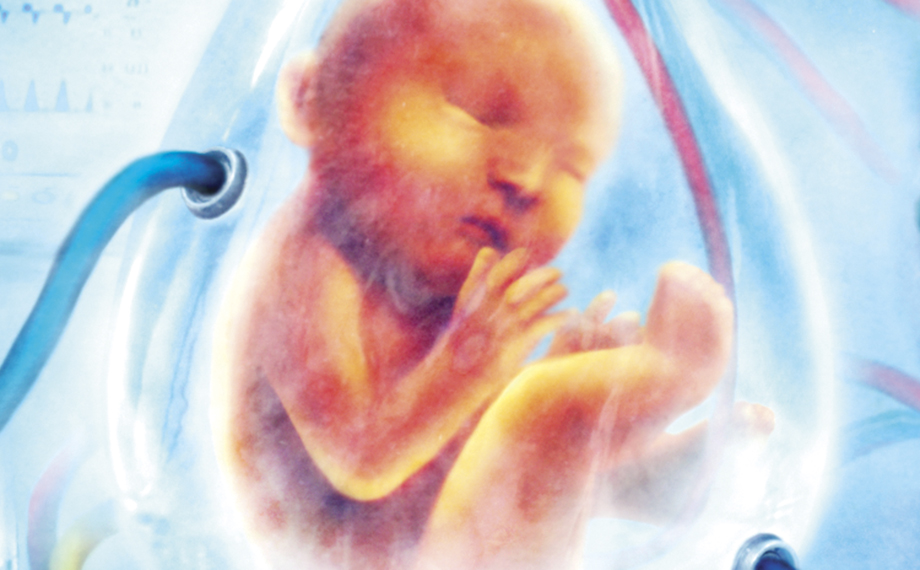
latest
Future Care Capital fiction shortlisted for national award
Short story explores the unintended consequences of developing artificial wombs

Anne Charnock's story All I Asked For is part of Future Care Capital's Fictions series, a year-long ‘thought experiment’: Four SciFi authors, one artist and 12 stories exploring near-future issues in health and social care
“With his hands flat on my belly, he told me that one day most babies would gestate from conception in an artificial womb. “But for now—” he sighed “—we must do what we can for high-risk cases. Migration to a baby-bag is a huge step forward.” Excerpt from All I Asked For by Anne Charnock
A story from Future Care Capital’s Fictions series – a year-long experiment encouraging authors to explore the near future impact of technology – has been shortlisted in the British Science Fiction Awards.
Anne Charnock’s All I Asked For is one of six finalists in the Best Short Fiction category of the prestigious awards. Winners will be announced at Eastercon, the national science fiction convention, in April.
Commenting on the news Dr Josefine Magnusson, FCC Senior Research Officer, said: “It’s a great story and we are all thrilled that it has been shortlisted for this accolade.
“All the stories in the series are intended to inspire debate and new thinking among practitioners and policy-makers.
“We also hope they will make these issues more accessible to the general public so being a contender for a national award should really help spread the word.”
Anne Charnock said she started her research for the story by reading the 2012 non-fiction book Like A Virgin, How Science is Redesigning the Rules of Sex by Dr Aarathi Prasad.
“I’ve always been interested in how science fiction addresses pregnancy and the way we make families.
Science fiction often jumps into the far future where perhaps there’s been a species schism with ordinary humans on one side and super-enhanced humans on the other.
So I wanted to look at ‘how do we get from here to there?’ After reading Dr Prasad’s book I became interested in the idea of artificial wombs.
Since then there have been major developments and people will have seen the press reports of lambs gestating in biobags.
The idea is these bags could help with the survival rate of very premature babies. But what about an artificial womb that will allow full-term gestation of IVF babies? Or other babies?
“As a science fiction writer my job is to consider in what directions could this technology go. So maybe the NHS will begin to weigh-up the cost-benefit of allowing a natural pregnancy versus the high cost of a pre-term baby?" Anne Charnock

“Perhaps some women who discover they are pregnant might want to opt to have the foetus ‘migrated’ to an artificial womb. That could be to avoid the risk of complications at childbirth, or because they didn’t want to disrupt their career – or maybe even because they don’t want the effect on their body of being heavily pregnant.
But then there’s the dark side. In future when a foetus becomes viable at 20 weeks, or18 weeks, what’s going to happen about terminations?
And then there is the issue of a pregnant woman with a chaotic lifestyle. If she uses drugs, or alcohol, might the state decide the best thing to do is to have that child migrated?
Intended and unintended consequences
“It’s about considering the intended consequences of technological innovation and then exploring the possible unintended consequences.
I’m grateful that the FCC Fictions series has given me the opportunity to do that and I’m delighted to be shortlisted for an award.”
Ms Charnock is writing three stories in all for the Fictions series, which runs until July. Her next one, Don’t Push The Blame On Me, continues to follow the story of Alice’s parents. Ms Charnock’s novel Dreams Before the Start of Time, won the 2018 Arthur C Clarke award.
The BSFA Awards have been presented annually since 1970. This year’s award winners will be announced at the national science fiction convention. This year’s gathering is called ConFusion, and will be held online between April 2-5.
Further reading
Getting Real: Artificial Wombs Dr Peter Bloomfield, FCC head of policy and research, explores the technology and science around ex-vivo childbirth